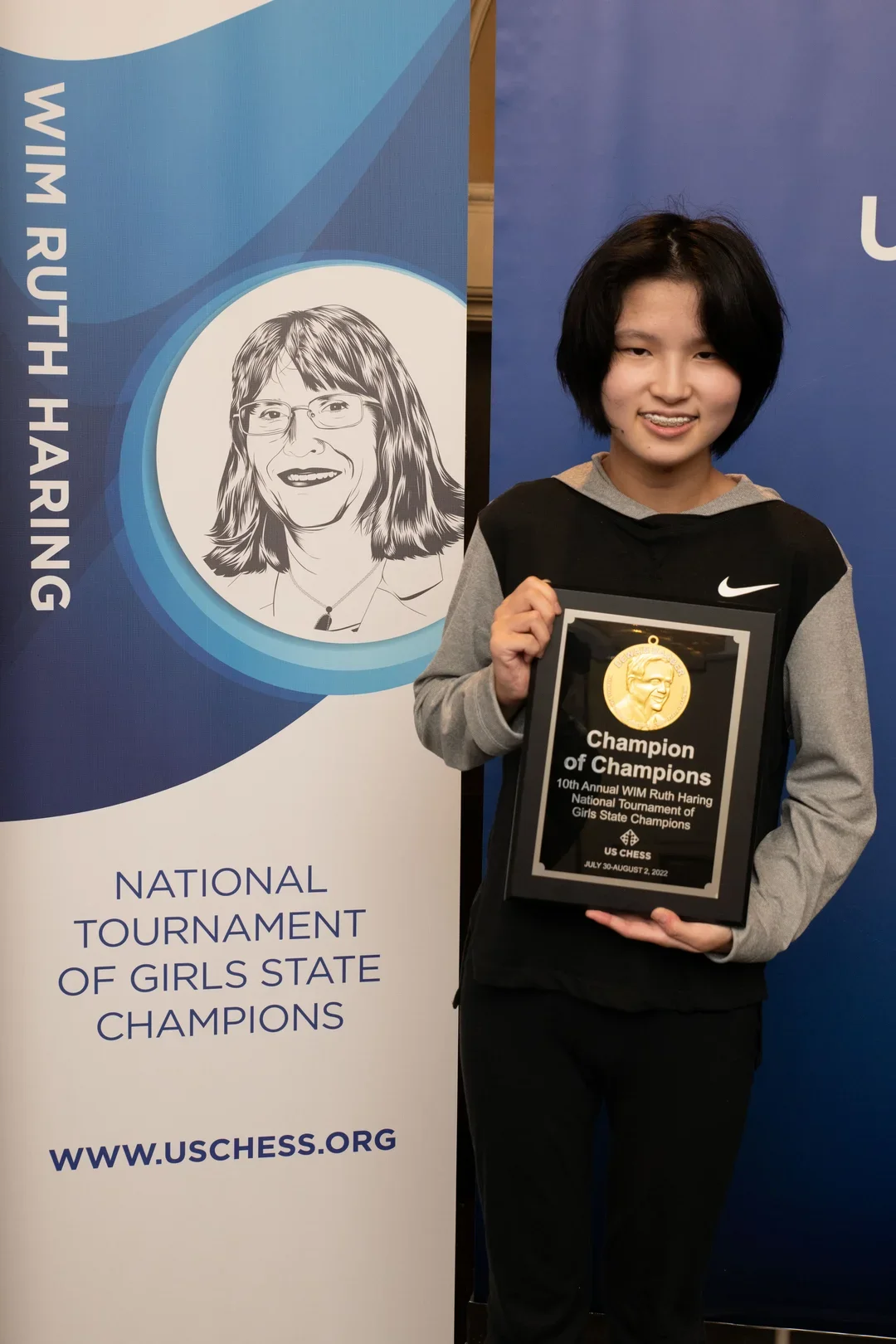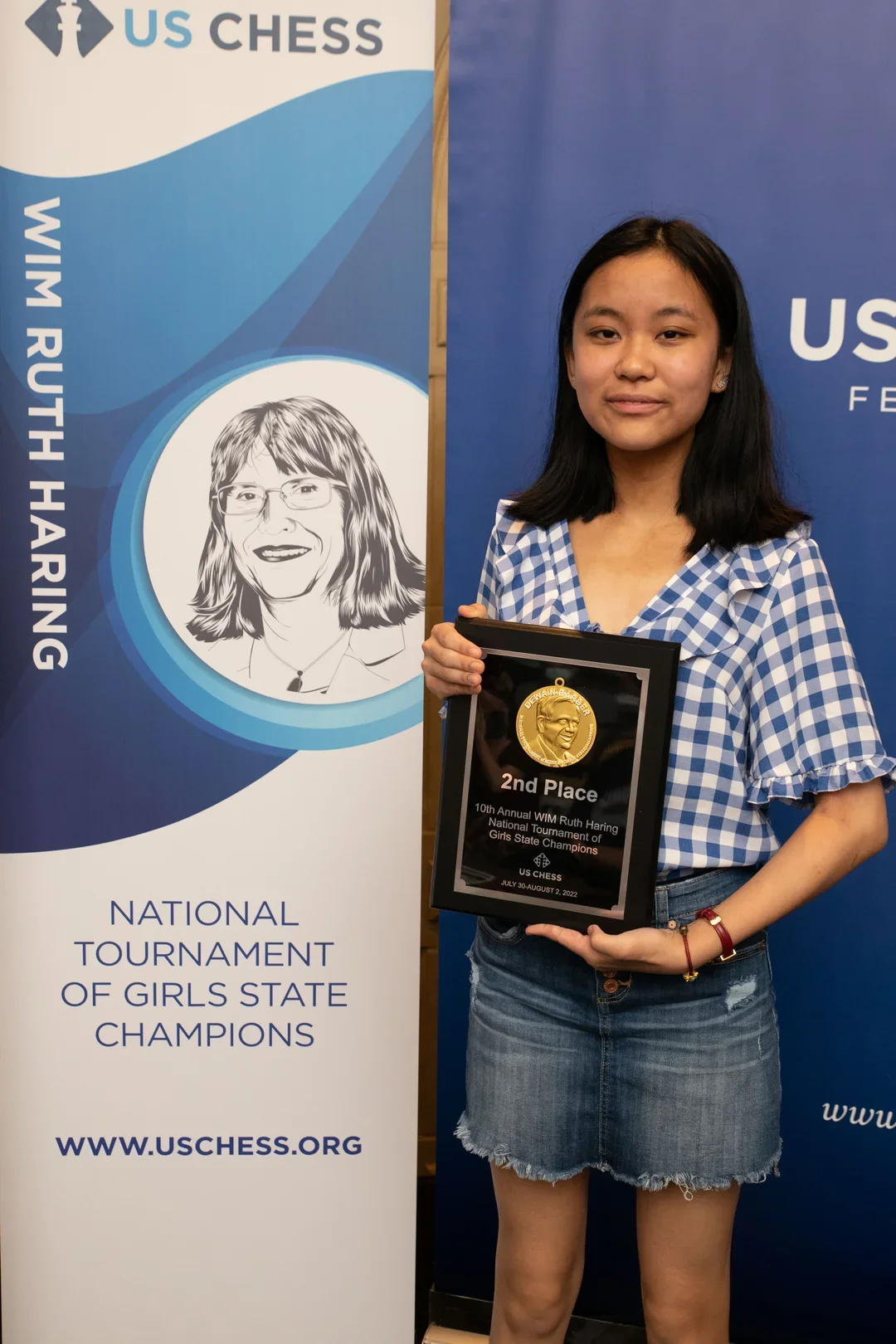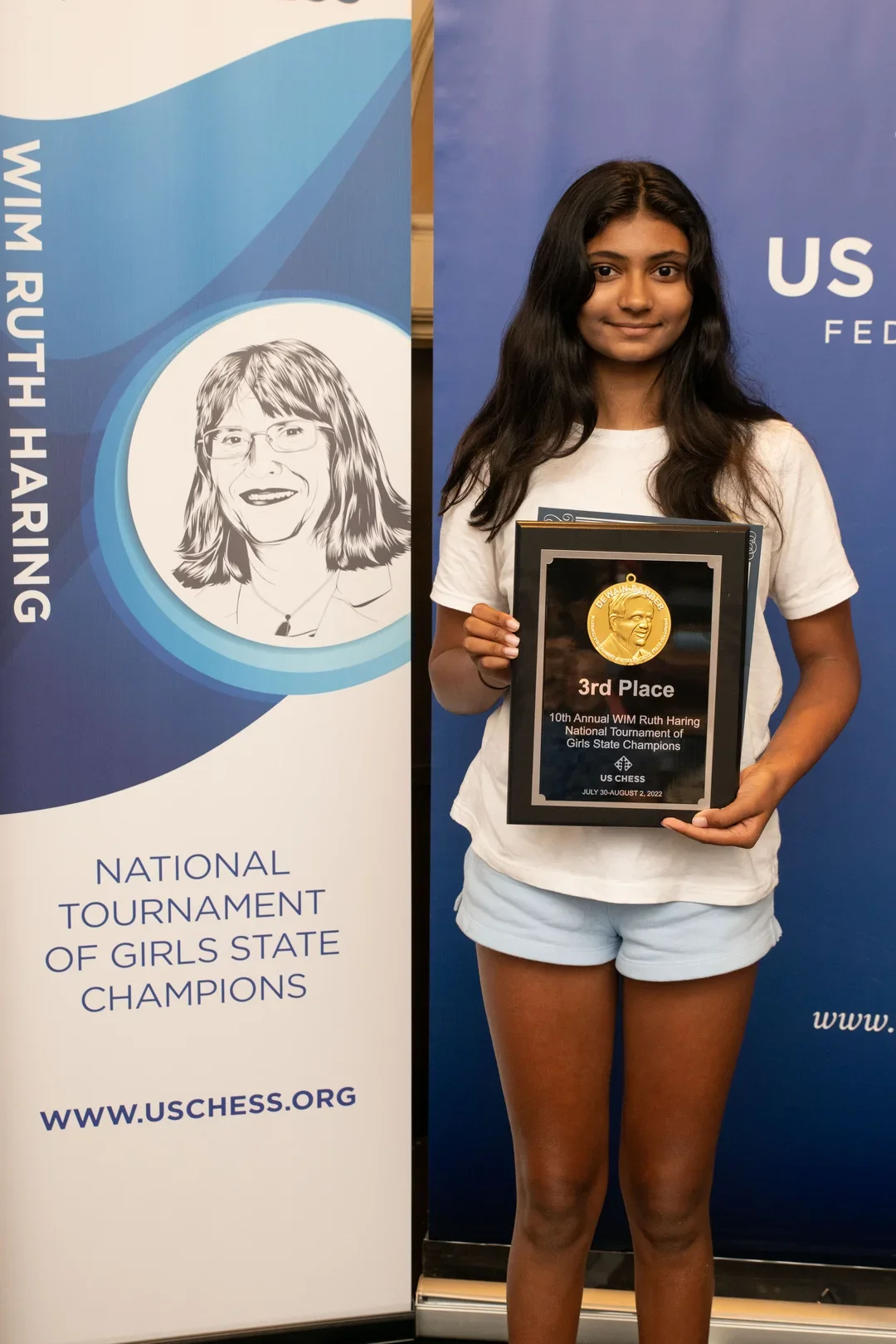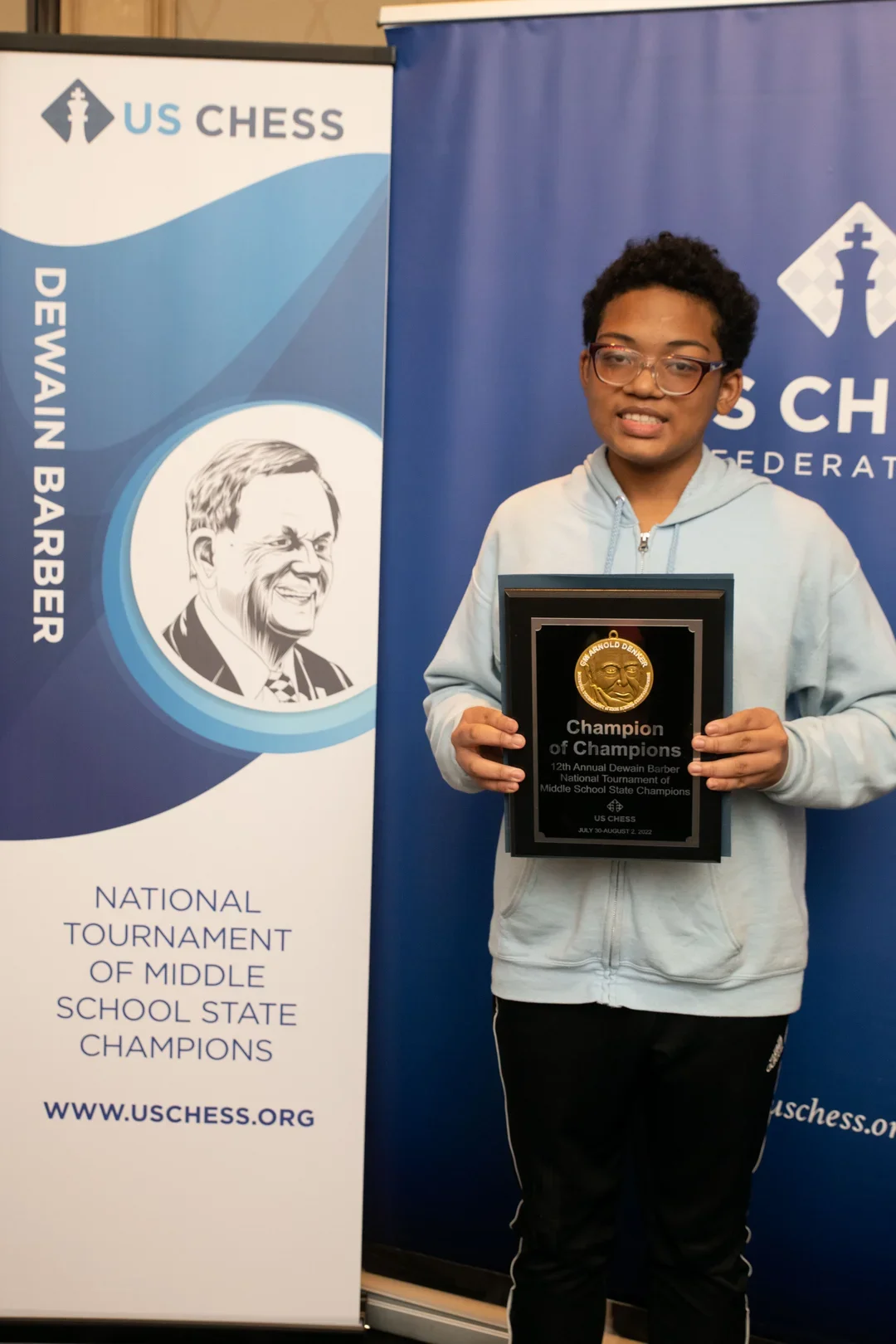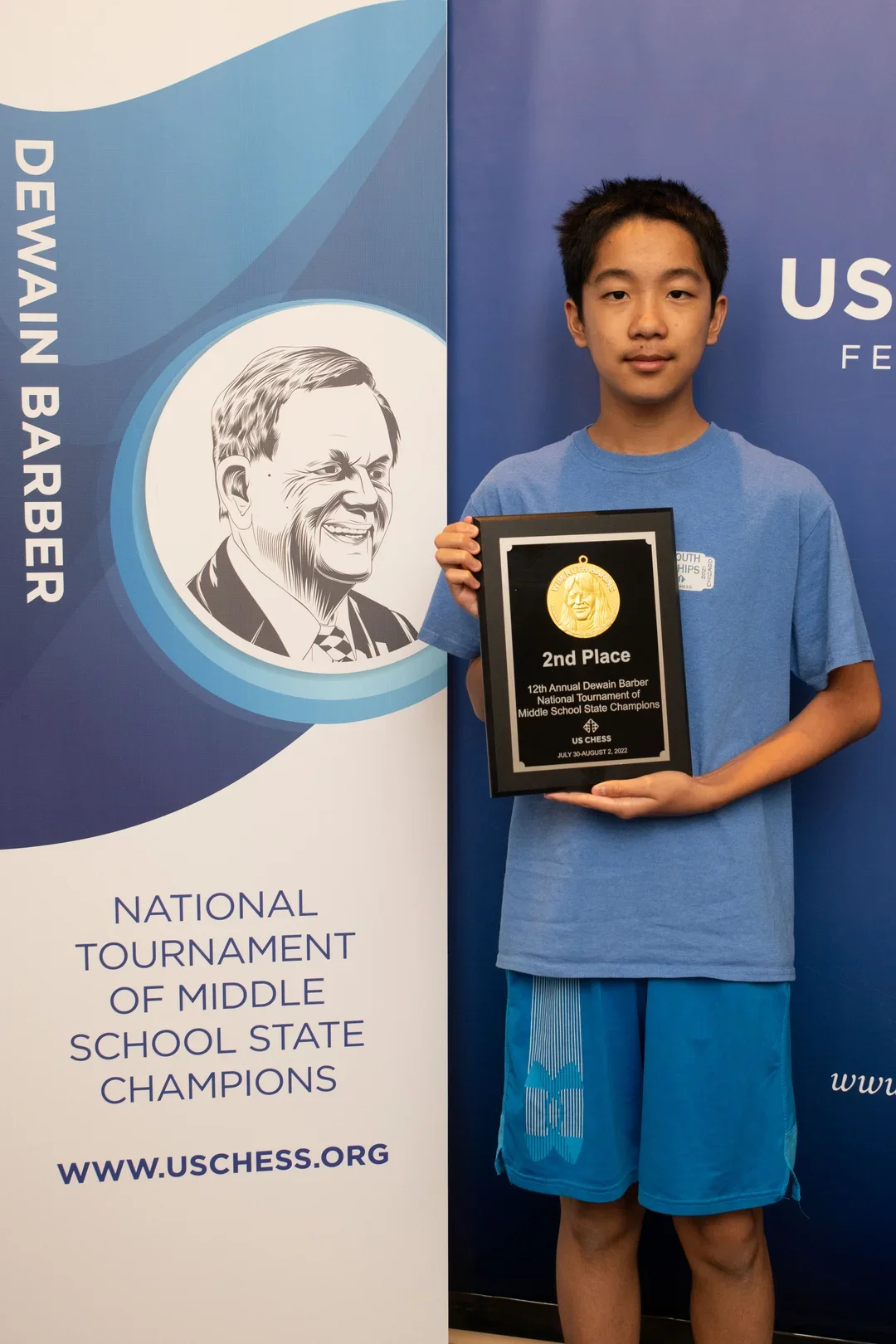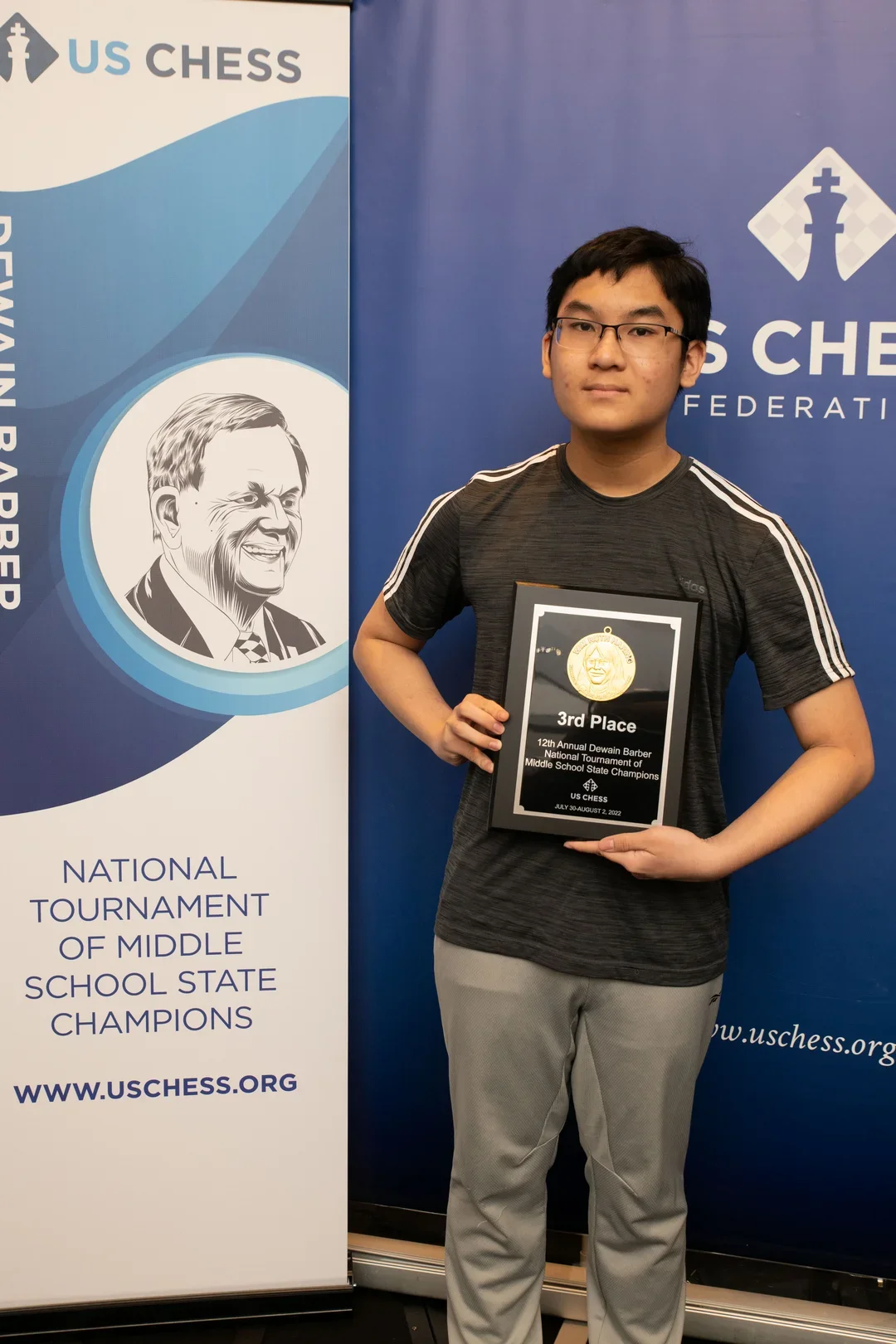Open
The field nearly tripled in size yesterday as the six-day schedule of the U.S. Open kicked off with numerous titled players joining the fray. Playing at the classical time control, these 175 entrants will play two games today and the ensuing two days, finally merging with the traditional schedule before Friday night’s seventh round.
On the second board, GM Daniel Naroditsky executed a flawless miniature against his 1890-rated opponent from Idaho. It is as of yet unclear whether he will play a 250-game hyper-bullet match with Firouzja the night before any of his games, but seeing the popular educational streamer put on a clinic over the board is always a delight.
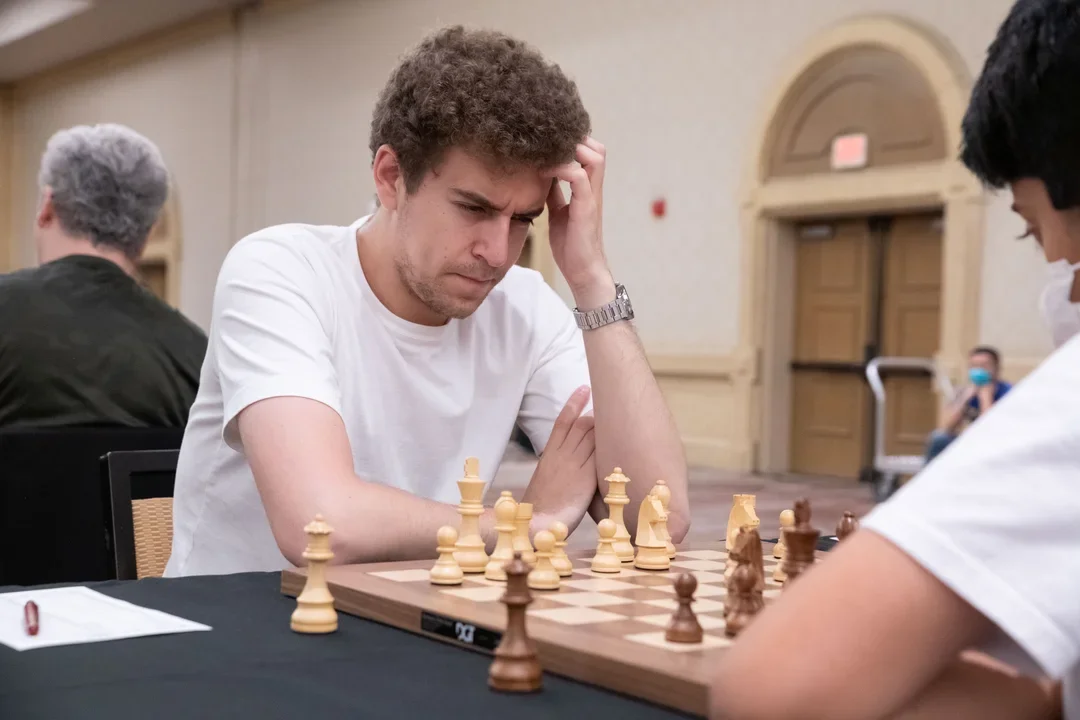
In the traditional nine-day schedule, only two remain unbeaten. Unsurprisingly, GM Elshan Moradiabadi is still unscathed, but 2026-rated John Luger is also on 4/4 after an upset win over John Langreck.
Speaking of upsets —one of the joys of covering the Open is that there are plenty of upset draws and wins to talk about. Here’s one from the first round of the six-day, where Black overcame a nearly 500 point rating different to pull out the win!
Quads and Committees
In addition to the full day of classical chess, the U.S. Open quads will continue for a third day. Yesterday saw nine quads, including two strong quads with players rated over 2000. For even faster chess enthusiasts, today is also the National G/15 championship.
Committee meetings also begin today, including the Rules, Communications, Scholastic, and Fair Play committees.
Invitationals
Tuesday was scholarship day in Rancho Mirage. The first-place finisher in each of the scholastic invitational events will receive a $5,000 scholarship to their choice of an institute of higher learning. Second and third place finishers will receive $3,000 and $2,000, respectively. Details on these and other awards can be found on all event webpages (USChess.org-->Play-->National State Invitationals) and in the opening/closing ceremony program. The top five finishers also receive cash prizes.
While there was no scholarship money set aside for the winners of the Irwin Tournament of Senior Champions, there were larger cash prizes for the top five finishers. As a result, the battles for second and third place took on as much, and in some cases more, significance than the fight for first.
Denker
Following the old tiebreak adage of ‘lose last, laugh last,’ tournament leader Georgia’s IM Arthur Guo drew his final game against Ohio’s FM Jason Wang to win first place on tiebreaks. By not losing any games, Guo had stronger pairings throughout the tournament than his rivals, meaning tiebreaks would likely come out in his favor were he to draw his final game. Indeed, after failing to find anything concrete on the attacking side of a sharp Ragozin, Guo took the draw and, fortunately for him, the math played out in his favor.
Northern Californian GM Andrew Hong and Arizonian FM Sandeep Sethuraman each won their final round games to finish second and third, respectively, on tiebreaks. Hong beat Washington’s IM Anthony He in a fascinating, trendy line of the Caro-Kann favored by neural net engines. Hong showed excellent understanding of a queen-less middle-game, winning in only 28 moves.
Sethuraman beat New York’s FM Nico Chasin in an admirably slow, patient grind where Chasin, down a pawn in the rook endgame, was objectively drawn for quite a while. But, knowing there was no need to hurry, and with scholarship money on the line, Sethuraman pushed until he found a narrow window of opportunity.
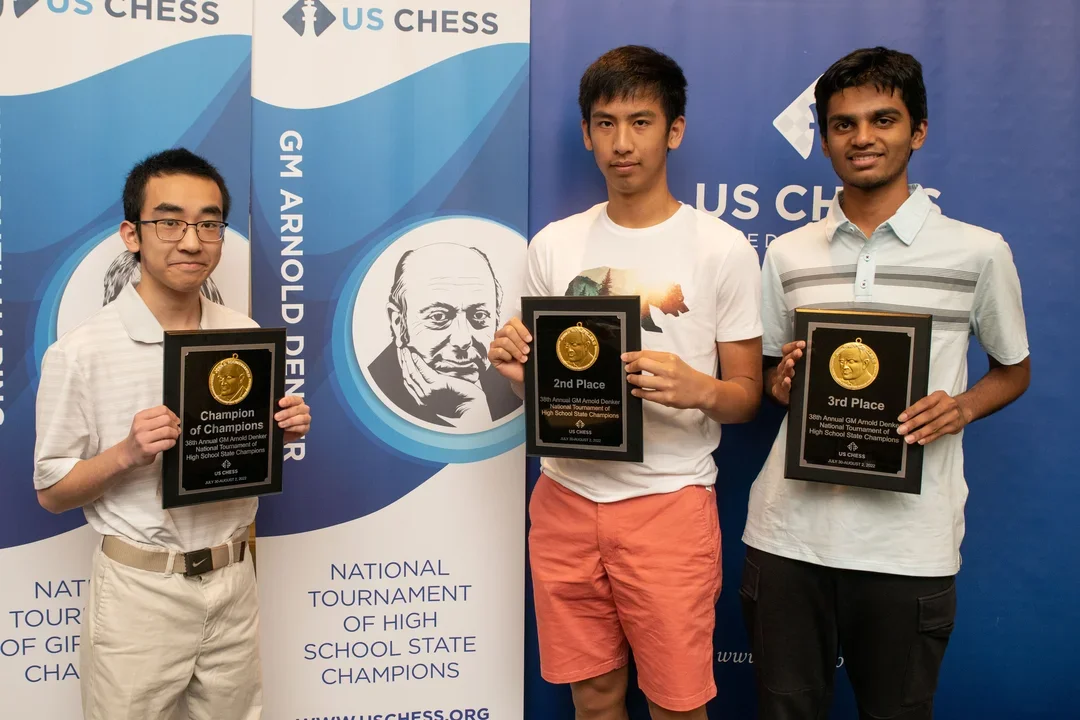
Haring
FM Ruiyang Yan, the Northern Californian who entered the final round as the only player on a perfect score across all the invitationals, happily drew Oregonian WFM Zoey Tang to claim clear first.
Tang took second in tiebreaks over North Carolina’s Asha Kumar, a 1948-rated player who finished on 5/6 ahead of many Experts and Masters by outplaying WFM Gracy Prasanna in a positional Mar Del Plata King’s Indian Defense.
Barber
Representing New York, Brewington Hardaway put a stop to Kansas’s Vaseegaran Nandhakumar impressive run of upsets to take home clear first with 5½/6. Playing with the black pieces, Hardaway created problems for Vaseegaran’s Catalan queenside pawns right out of the opening and, despite attempting to create problems deep into the endgame, Vaseegaran was unable to ever equalize.
Pennsylvanian FM Erick Zhao finished in clear second with 5/6 after drawing Floridian FM Bach Ngo. Zhao had a promising position in a theoretical line of the Three-Knights Grunfeld, but was unable to convert. Ngo edged out Vaseegaran on tiebreaks to take home the third place prize.
Rockefeller
Top seeds Andrew Jiang from Georgia, and Benjamin Tang, the Southern California representative, finally met for a last-round showdown that could determine clear first. But after agreeing to an early draw, Jiang won first on tiebreaks.
The draw also allowed New York’s Sam Luger to join the three-way tie atop the standings with 5/6, finishing third on tiebreaks by beating North Carolina’s Krishna Rallabandi.
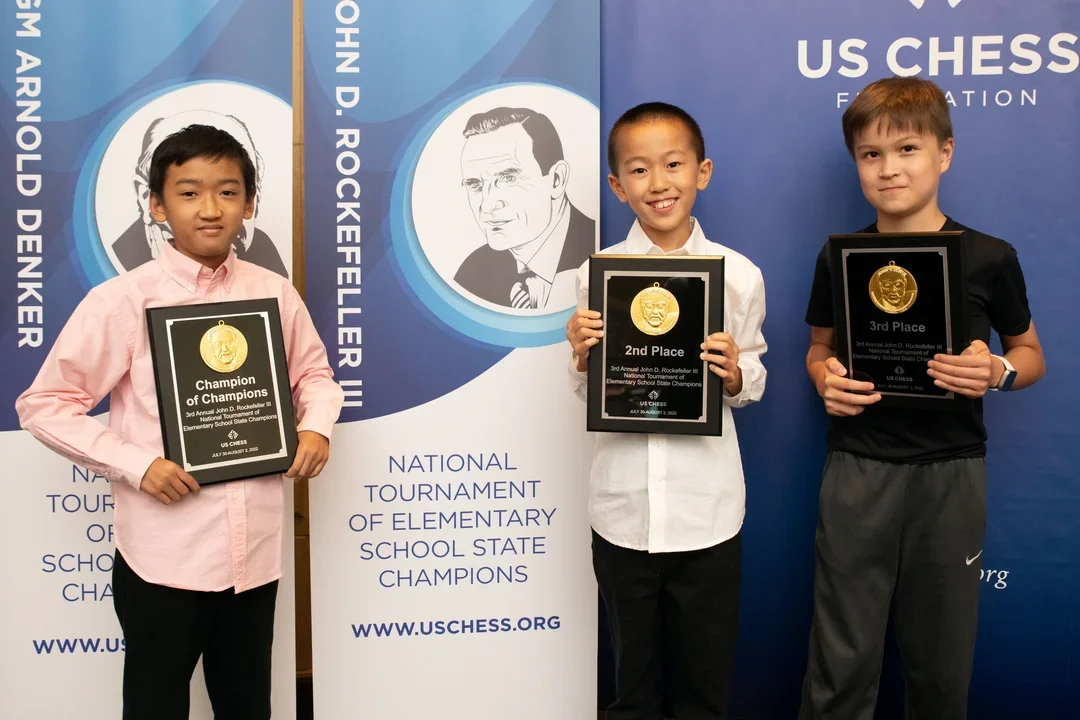
Irwin
Texas’s IM Douglas Root, a fixture on the top boards throughout the entire event, needed only a draw against Oregon’s GM James Tarjan to claim at least a share of first. He achieved this without much difficulty, and with the best tiebreaks, Root is in line to play in the 2023 U.S. Senior Championship.
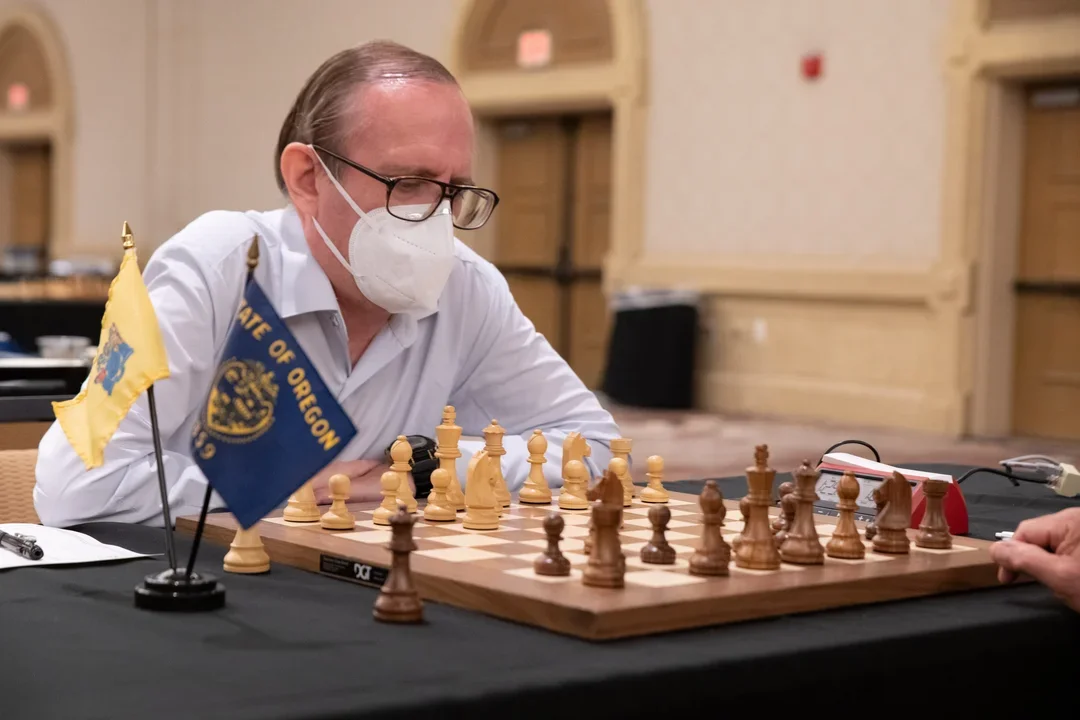
This result allowed southern California’s GM Enrico Sevillano to catch up to Root on 5/6 with a win over Illinois’s Steven Szpisjak.
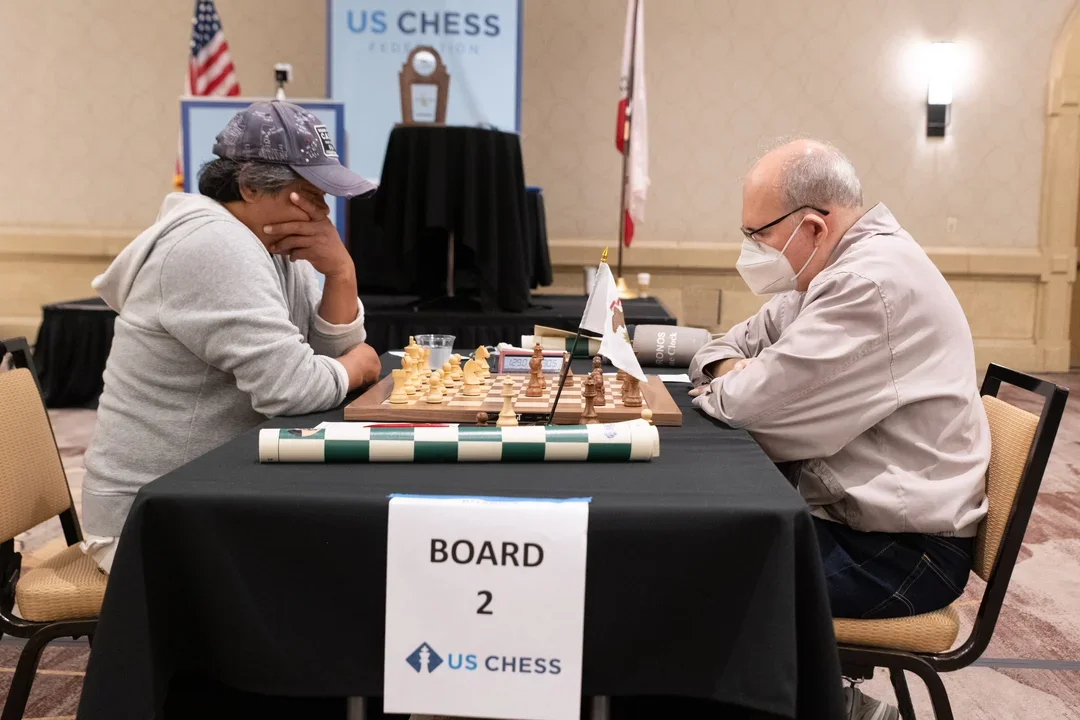
With the draw, Tarjan finished on 4½/6, which was good enough for a three-way tie for third alongside South Carolina’s IM Alexander Matros and Connecticut’s GM Sergey Kudrin.
Quick Links
Social media tags:
Categories
Archives
- December 2025 (26)
- November 2025 (29)
- October 2025 (39)
- September 2025 (27)
- August 2025 (29)
- July 2025 (43)
- June 2025 (25)
- May 2025 (24)
- April 2025 (29)
- March 2025 (29)
- February 2025 (20)
- January 2025 (24)
- December 2024 (34)
- November 2024 (18)
- October 2024 (35)
- September 2024 (23)
- August 2024 (27)
- July 2024 (44)
- June 2024 (27)
- May 2024 (31)
- April 2024 (51)
- March 2024 (34)
- February 2024 (25)
- January 2024 (26)
- December 2023 (29)
- November 2023 (26)
- October 2023 (37)
- September 2023 (27)
- August 2023 (37)
- July 2023 (47)
- June 2023 (33)
- May 2023 (37)
- April 2023 (45)
- March 2023 (37)
- February 2023 (28)
- January 2023 (31)
- December 2022 (23)
- November 2022 (32)
- October 2022 (31)
- September 2022 (19)
- August 2022 (39)
- July 2022 (32)
- June 2022 (35)
- May 2022 (21)
- April 2022 (31)
- March 2022 (33)
- February 2022 (21)
- January 2022 (27)
- December 2021 (36)
- November 2021 (34)
- October 2021 (25)
- September 2021 (25)
- August 2021 (41)
- July 2021 (36)
- June 2021 (29)
- May 2021 (29)
- April 2021 (31)
- March 2021 (33)
- February 2021 (28)
- January 2021 (29)
- December 2020 (38)
- November 2020 (40)
- October 2020 (41)
- September 2020 (35)
- August 2020 (38)
- July 2020 (36)
- June 2020 (46)
- May 2020 (42)
- April 2020 (37)
- March 2020 (60)
- February 2020 (38)
- January 2020 (45)
- December 2019 (34)
- November 2019 (35)
- October 2019 (42)
- September 2019 (45)
- August 2019 (56)
- July 2019 (44)
- June 2019 (35)
- May 2019 (40)
- April 2019 (48)
- March 2019 (61)
- February 2019 (39)
- January 2019 (30)
- December 2018 (29)
- November 2018 (51)
- October 2018 (45)
- September 2018 (29)
- August 2018 (49)
- July 2018 (35)
- June 2018 (31)
- May 2018 (39)
- April 2018 (31)
- March 2018 (26)
- February 2018 (33)
- January 2018 (30)
- December 2017 (26)
- November 2017 (24)
- October 2017 (30)
- September 2017 (30)
- August 2017 (31)
- July 2017 (28)
- June 2017 (32)
- May 2017 (26)
- April 2017 (37)
- March 2017 (28)
- February 2017 (30)
- January 2017 (27)
- December 2016 (29)
- November 2016 (24)
- October 2016 (32)
- September 2016 (31)
- August 2016 (27)
- July 2016 (24)
- June 2016 (26)
- May 2016 (19)
- April 2016 (30)
- March 2016 (36)
- February 2016 (28)
- January 2016 (32)
- December 2015 (26)
- November 2015 (23)
- October 2015 (16)
- September 2015 (28)
- August 2015 (28)
- July 2015 (6)
- June 2015 (1)
- May 2015 (2)
- April 2015 (1)
- February 2015 (3)
- January 2015 (1)
- December 2014 (1)
- July 2010 (1)
- October 1991 (1)
- August 1989 (1)
- January 1988 (1)
- December 1983 (1)


